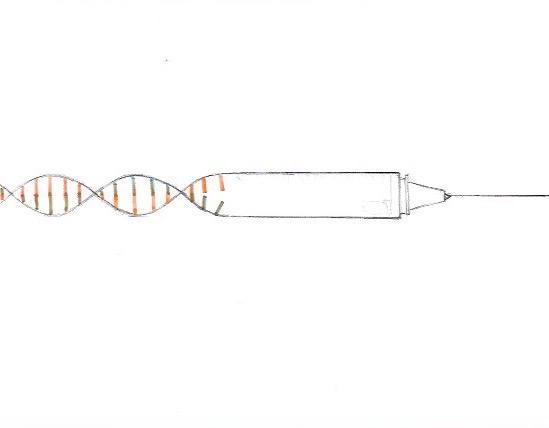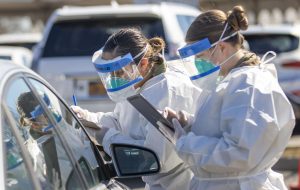A brief look into remdesivir, the biggest hope for treating COVID-19
May 26, 2020
Remdesivir remains the current biggest hope for curbing the effects of the novel coronavirus. But what is it? Here, we’ll answer five quick questions about what this drug is and what it could mean.
What is remdesivir?
In scientific terms, remdesivir is known as what’s called a nucleotide analog. All genetic material is composed of five unique building blocks: adenine, thymine, guanine, cytosine and uracil. A nucleotide analog is almost an exact replica of each of these nucleotides, slightly different, but similar enough to be recognized by the virus.
When the analog becomes incorporated into the viral genome, those small chemical differences are enough to prevent the virus from replicating properly.
Why is remdesivir important right now?
Remdesivir was given emergency FDA approval May 1, the administration warning that it was only to be distributed to severe disease patients, which refers to individuals that can no longer breathe on their own. Due to the lack of supply of the drug, its distribution has to be closely watched.
How is remdesivir working against COVID-19?
Remdesivir specifically blocks the function of an enzyme in COVID-19 called RNA polymerase, which is needed to replicate the viral DNA and allow it to spread in the body.
What is the history of remdesivir?
This drug was originally used in trials against Hepatitis C, but was ineffective. It later was studied during the fight against the Ebola virus, but, although more successful with this than Hepatitis C, remdesivir still didn’t have the effect hoped for. However, when Severe Acute Respiratory Syndrome (SARS-CoV) and Middle Eastern Respiratory System (MERS-CoV) emerged, there was data to show that remdesivir may actively fight against these two types of coronaviruses.
Is there proof that remdesivir will work?
So far, there is no data to prove that remdesivir will work against COVID-19. However, the novel coronavirus is genetically similar enough to SARS and MERS to stand a chance, and that fact is what is keeping researchers hopeful. An in vitro study performed in Wuhan, China supports that remdesivir and an anti-malaria drug may be highly effective in fighting against COVID-19.
Currently, it seems that remdesivir will be used in a drug cocktail — a combination of multiple drugs that together make for an effective treatment.





